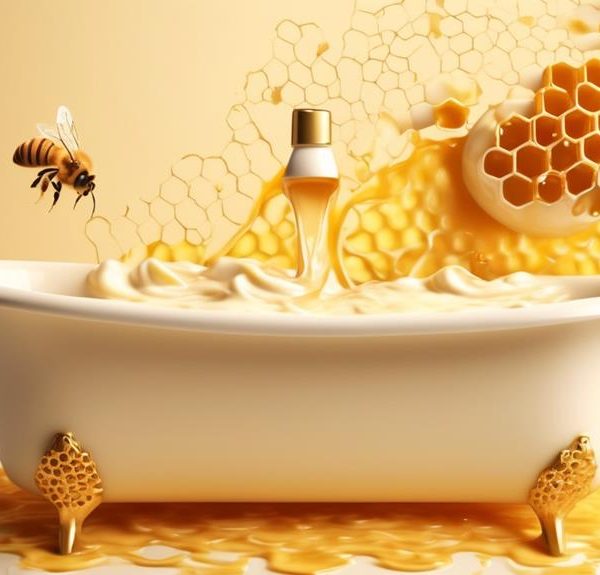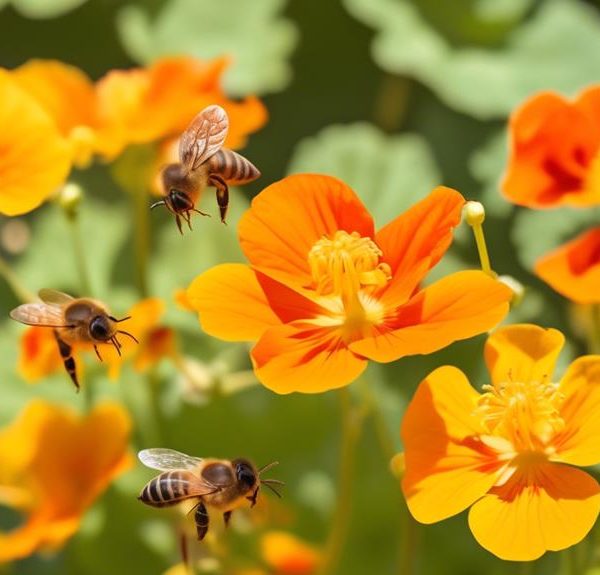Uncover the truth about mosquitoes' attraction to honey and its potential implications for disease control and prevention.
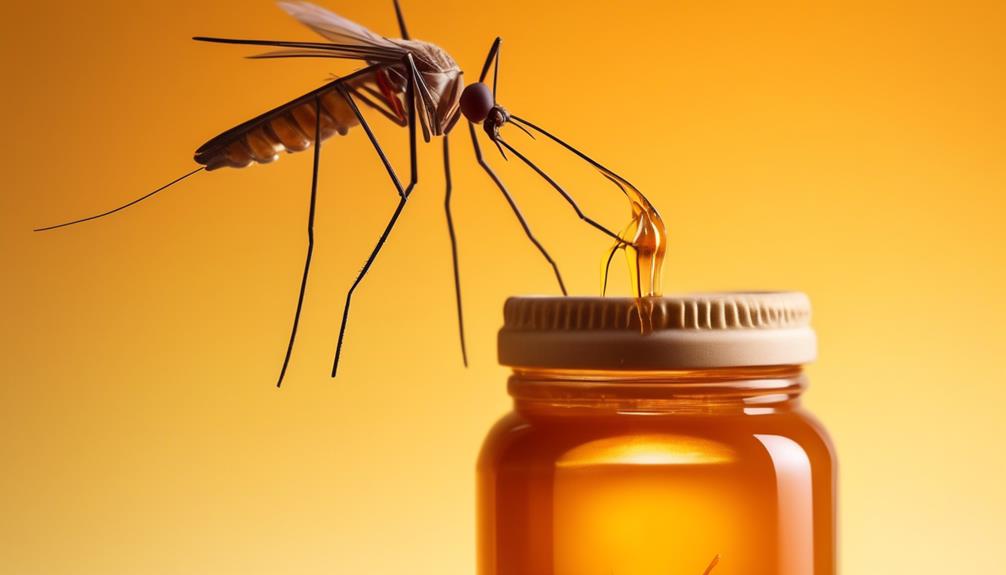
Are Mosquitoes Attracted to Honey
While bees are drawn to honey like a kid to a candy store, the question of whether mosquitoes share this sweet tooth is a curious one.
You're probably wondering, 'Why bother studying such a peculiar topic?' Simply put, understanding what attracts these pesky insects could have significant implications for mosquito control and, consequently, disease prevention.
But before we crack this enigma, let's clear up one thing—you won't find the answer by smearing honey on your skin and waiting for mosquitoes to swarm.
So, what's the real deal? Stick around, and we'll unravel this sticky conundrum.
Key Takeaways
- Mosquitoes are primarily attracted to carbon dioxide (CO2) and lactic acid, with floral fragrances like honey playing a secondary role in attraction.
- Consuming honey does not directly increase attractiveness to mosquitoes; primary attractants remain CO2 and lactic acid.
- Honey alone is not typically sufficient to attract mosquitoes; they are more likely lured by a combination of scents and CO2 or heat.
- Understanding that mosquitoes are primarily guided by CO2 and body heat can help debunk the myth that they are attracted to sweetness like honey.
Understanding Mosquito Attraction
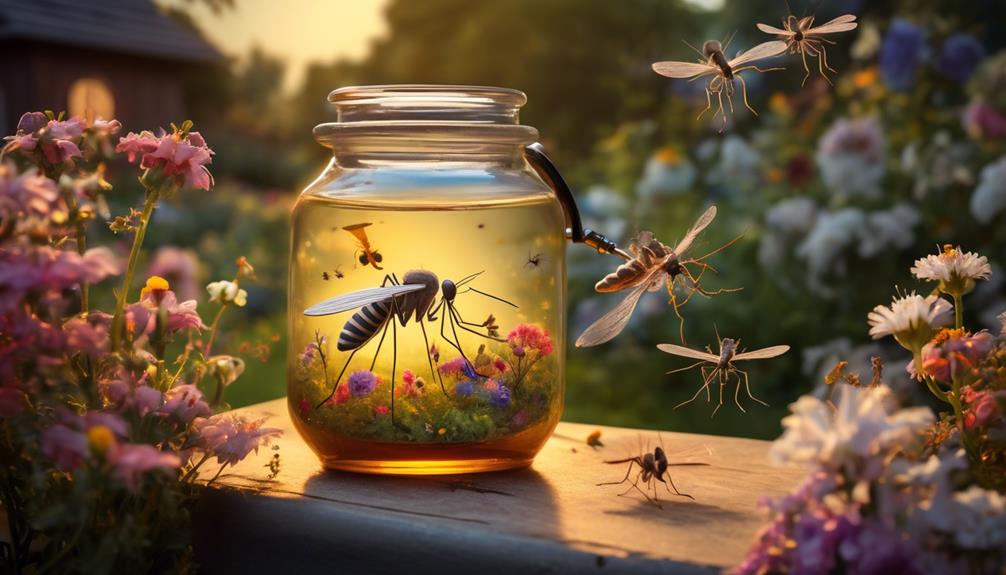
To comprehend why mosquitoes might be drawn to honey, it's essential to first understand what primarily attracts these pests. Mosquitoes are enticed by several factors, but primarily, they're drawn to carbon dioxide (CO2), which all mammals exhale. They can detect this gas from as far as 50 meters away and use it as a primary method of locating their next meal. Another significant attractor for mosquitoes is lactic acid, a compound present in human sweat.
In addition to these, mosquitoes are attracted to certain scents. Floral fragrances, for instance, are known to attract mosquitoes. Why is this? It's because mosquitoes feed on nectar when not reproducing, so they're naturally drawn to these fragrances. This is where honey, a sweet substance produced by bees from the nectar of flowering plants, may come into the picture.
The sugars present in honey might mimic the nectar that mosquitoes feed on, potentially making it attractive to them. However, it's crucial to note that this doesn't mean that consuming honey will make you more attractive to mosquitoes. The primary factors attracting mosquitoes remain CO2 and lactic acid.
The Science Behind Mosquito Behavior
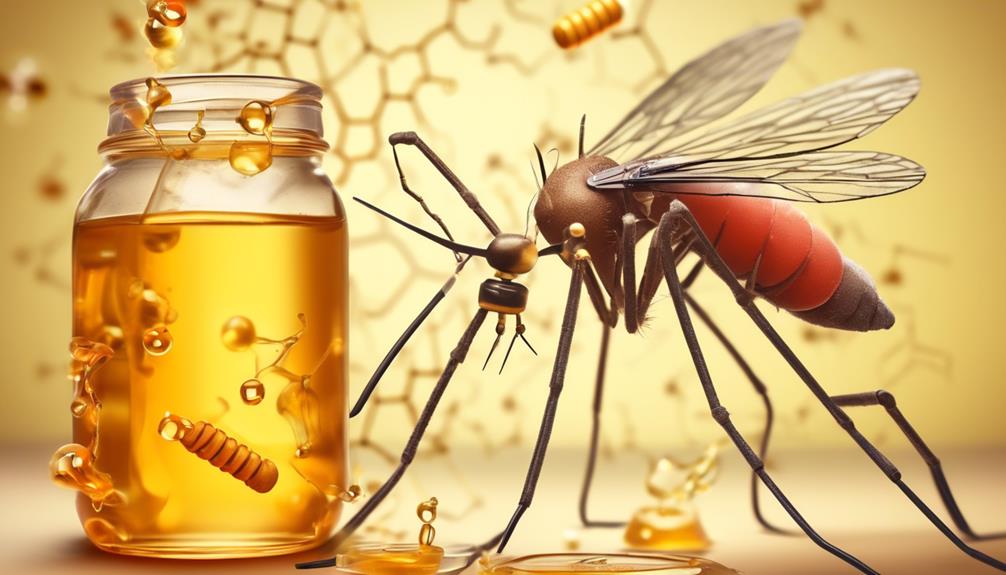
While understanding the elements that attract mosquitoes gives us a basic picture, let's dig deeper into the complex biology and behavioral patterns of these pests to comprehend their attraction mechanisms fully.
Mosquitoes are primarily guided by their sense of smell. They've olfactory receptors on their antennae capable of detecting carbon dioxide and lactic acid in human sweat from up to 100 feet away. This is why you're often a target if you've been exercising or are breathing heavily.
However, it's not just the smell of your sweat that entices them. They're also drawn to the heat and moisture your body emits. Furthermore, they're attracted to dark and vibrant colors, so your clothing choice can make you more conspicuous to them.
Recent research has also found that mosquitoes remember the tastes and smells they associate with a good or bad experience. They can learn to avoid hosts that swat them away and remember the scent of a host that provided a good meal.
Understanding these mechanisms can help us better manage our interactions with mosquitoes and potentially reduce our attractiveness to them. It's a complex interplay of biology, behavior, and our own actions.
The Relationship Between Mosquitoes and Honey
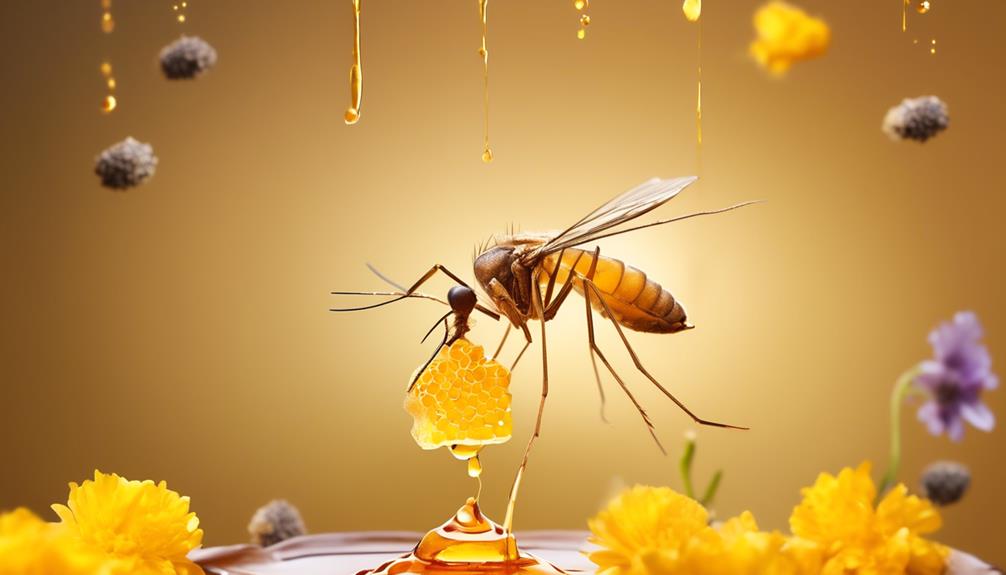
You might wonder if the sweet allure of honey can draw mosquitoes much like it does bees and other insects. Scientifically, mosquitoes are not particularly drawn to honey. Why? Because their primary source of attraction is carbon dioxide that mammals exhale and body heat, not sweetness.
Let's break this down further. Here's a simple comparison table:
Mosquito Attraction Factors | Attraction to Honey |
|---|---|
Carbon Dioxide | No |
Body Heat | No |
Lactic Acid | No |
Octenol | No |
Floral Scents | Yes |
As you can see, honey falls under 'floral scents', which mosquitoes are indeed attracted to. However, the presence of honey alone isn't typically sufficient to attract mosquitoes. Instead, they're more likely to be lured by the combination of floral scents and carbon dioxide or body heat.
Debunking Mosquito Myths
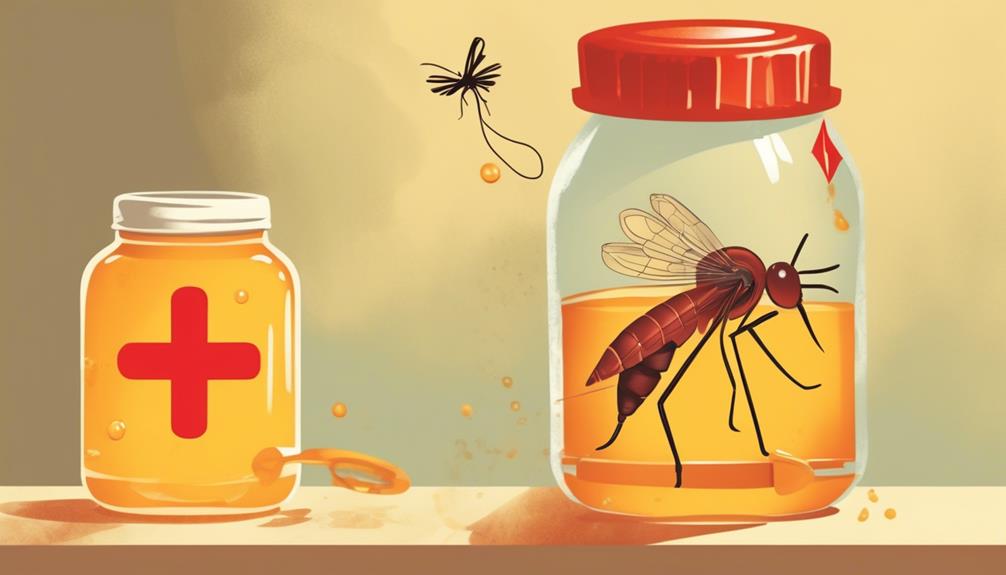
Despite the common belief that mosquitoes might be attracted to honey, it's essential to debunk a few prevalent mosquito myths that often lead to misconceptions about their behavior and attractions.
Firstly, it's not sweetness that attracts mosquitoes, but the carbon dioxide we exhale and specific body odors. Therefore, consuming honey or standing near it won't make you a mosquito magnet. Secondly, mosquitoes don't just bite at dawn and dusk. Some species, like the Aedes, are daytime biters, while others like the Culex, bite at night.
Another myth is that all mosquitoes transmit diseases. Not every mosquito is a carrier of diseases such as dengue, zika, or malaria. Only certain species like the female Anopheles mosquito are responsible for malaria transmission.
Lastly, it's a misconception that mosquitoes die after they bite. Unlike bees, mosquitoes can bite multiple times. The female mosquitoes need protein from blood for their eggs, allowing them to bite multiple times during their lifespan.
Understanding these facts can help dispel myths and lead to more effective mosquito control strategies. After all, knowledge is a powerful tool in preventing mosquito-borne diseases.
Practical Tips for Mosquito Control
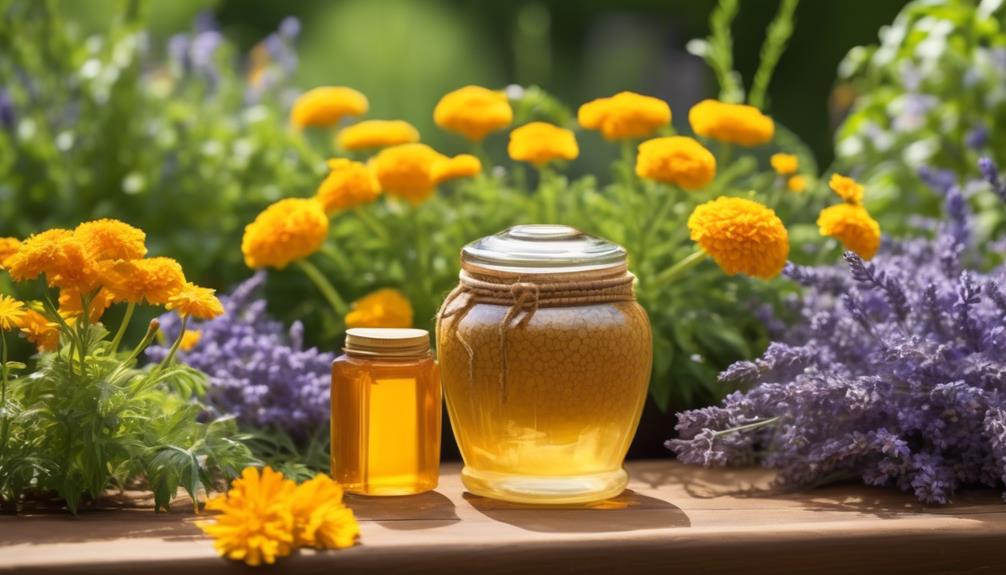
Implementing effective mosquito control strategies may significantly reduce your exposure to these pests and the potential diseases they carry. It's crucial to understand that mosquitoes breed in stagnant water, hence, eliminating such breeding sites can be your first line of defence. Regularly empty, cover, or treat any items that hold water, such as tyres, buckets, bird baths, or flower pots.
Using mosquito repellents containing DEET or Picaridin on exposed skin and clothing also proves effective. While mosquitoes are most active at dusk and dawn, you're advised to wear long sleeves and trousers during these times.
Installing screens on windows and doors can block mosquitoes from entering your home. You can also use air-conditioning, as mosquitoes prefer warm environments.
Consider using mosquito traps and bug zappers outdoors. However, remember that these devices won't eliminate mosquitoes entirely; they'll only reduce the number in your immediate vicinity.
Finally, introduce natural predators like bats and birds into your environment. A single bat can consume thousands of mosquitoes each night.
These tips aren't exhaustive, but they're practical and can significantly help in controlling mosquito populations around your home.
Conclusion
So, are mosquitoes drawn to honey? Not really. It's not the sweetness they're after, but the carbon dioxide and lactic acid we emit.
Misconceptions often cloud our understanding of these pesky insects. Ultimately, it's your exhales, not your honey jar, that attracts them.
To keep mosquitoes at bay, focus on reducing standing water and using repellents. Remember, understanding their behavior is key to effective control.

